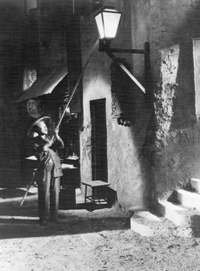Q & A with Bloomsbury Publishing about Mao's Great Famine
What are your 5 favourite books, and why?
Friedrich Hayek's Road to Serfdom is wonderful in its description of how the ideals of socialism cannot be pursued except by means that few of its proponents would ever have approved of, including the gradual destruction of all individual freedoms by a central plan. An old classic I read when I was a student of Russian literature at the University of Geneva is Dostoevski's Crime and Punishment, with its anguished portrayal of Raskolnikov, a drop-out student who justifies his bungled murder of an elderly pawnbroker in the name of the greater good but is then devoured by guilt. I am a fan of Ian McEwan, and read The Cement Garden several times. I do read a lot of history, and very much enjoy authors such as Robert Service, Orlando Figes and Saul Friedländer, but have few favourites when it comes to China, with the exception of Li Zhisui's magisterial portrayal of Mao. I always find Primo Levi's If This is a Man breathtaking - quite literally. I also very much like movies that explore the ways in which the best laid plan inevitably goes wrong, the early Coen brothers - The Big Lebowski - being a good example. Is there a more devastating example of a utopian plan gone horribly wrong than Mao's Great Leap Forward?
What inspired you to write your latest book Mao's Great Famine?
For the best part of two decades I have worked in archives in China and kept a watchful eye on the Maoist era. While communist party archives are still very closely guarded, over the past four or five years they have gradually openened up to the extent that serious research has become possible on the famine. But most of all I wrote Mao's Great Famine simply because I just couldn't live with myself if, as an historian of modern China, I had continued to sidestep the mass murder that took place in that country from 1958 to 1962. Imagine walking into a library with shelves of books on Cambodia but not a volume on Pol Pot except for one account by a journalist. And of course what happened in the killing fields in that country was a mere fraction of the human destruction that took place in a single province like Sichuan, where more than ten million people were worked, starved or beaten to death during Mao's Great Famine.
What are you reading now?
I just finished re-reading John Hersey's Hiroshima and have a stack of books on the side of my sofa, including William Dalrymple's Last Mughal, Nicolas Werth's Cannibal Island and Adam Tooze's The Wages of Destruction.
If you could require everyone to read just one book what would it be?
I think Friedrich Hayek's Road to Serfdom should be required reading for anybody interested in the history of the People's Republic of China.
What's the best thing you've ever written?
The last sentence in my last book, in which I lovingly thank my wife.
What's the last piece of your writing that you hated and threw in the wastepaper bin and why?
I write very slowly and am constantly throwing out words, sentences and even entire paragraphs. I deleted a whole chapter from the final version of Mao's Great Famine called 'The Geography of Death'. I rarely hate what I write, but I am always trying to improve what I have, adding a touch of the brush to the overall picture or tweaking the structure of the book. So strictly speaking I never finish anything at all, I just decide to let it go.
Is there any particular ritual involved in your writing process (favourite pen, lucky charm, south-facing window)?
Writing is a painstakingly slow but very regular process for me. I write almost every day, always in the morning. I never stop looking for better words and keep a little notebook in which I jot down phrases or word pictures. I have a study with a beautiful view of the South China Sea, with green islands in the distance and the ceaseless transit of container vessels that spread 'made in China' to the rest of the world.
